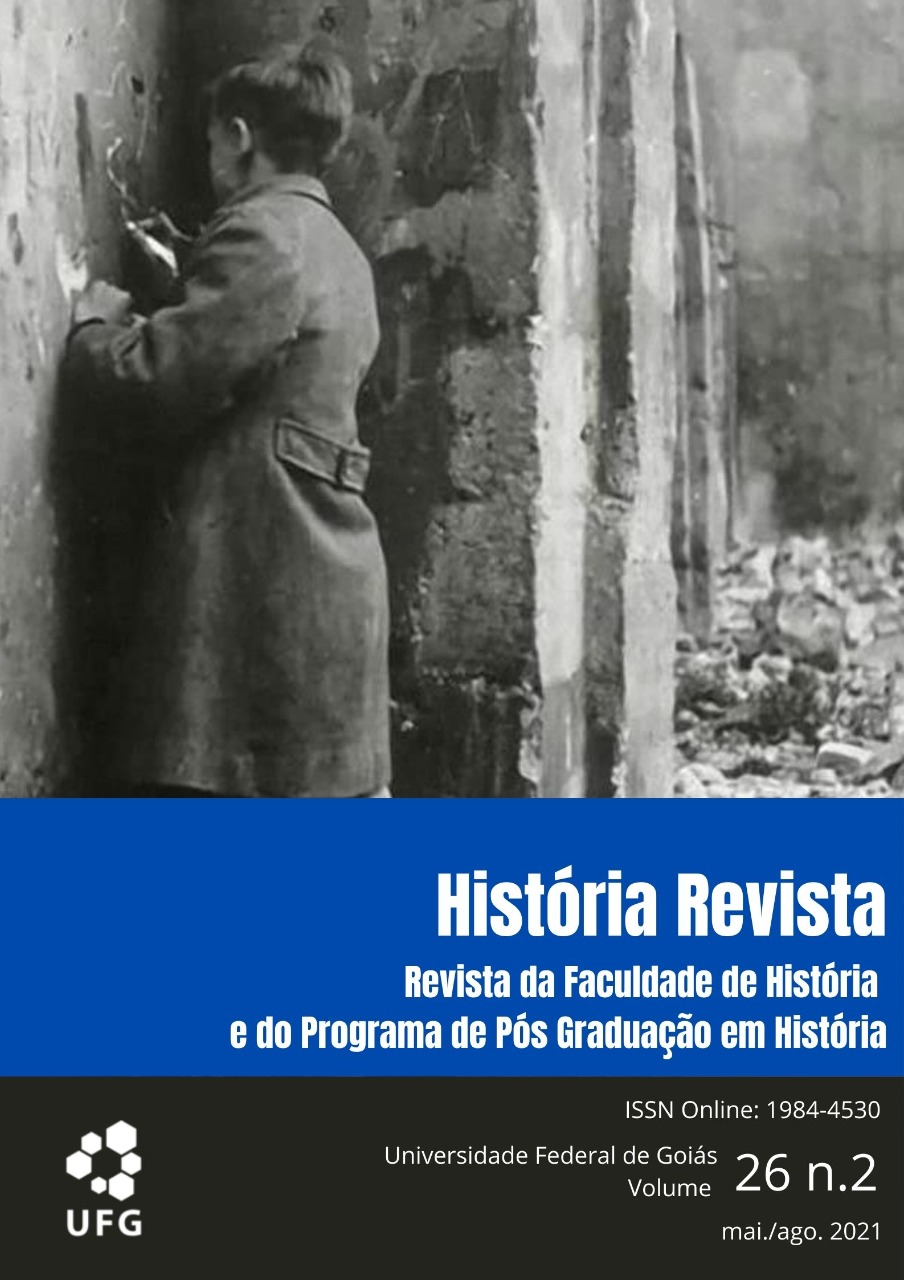O teatro de Albert Camus como fonte de interpretação para o século XX
inspirações artísticas para uma época violenta
DOI:
https://doi.org/10.5216/hr.v26i2.68627Resumo
O século XX foi um período marcado por contundentes autoritarismos que impactaram a sua produção artística, são vários os artistas e intelectuais que responderam à violência política lançando mão de aspectos temáticos e formais para fazer da arte uma forma de resistência e luta. Nesse amplo contexto, encontra-se a figura do escritor franco-argelino Albert Camus (1913-1960) que se tornou mundialmente conhecido por seus romances, ensaios, bem como por sua atuação na Resistência Francesa e nos embates políticos daí gerados. Neste artigo, trataremos das peças teatrais escritas por Camus ao longo de sua trajetória como escritor, nosso objetivo é compreender como a forma dramática foi importante para o autor se colocar publicamente frente aos temas que marcaram sua época. Além de recuperar os textos teatrais para a análise histórica, buscamos compreender como o autor interpretou os autoritarismos de seu tempo e principalmente como ele nos serve de inspiração para refletir sobre o início do século XXI.
Downloads
Referências
BAKEWELL, Sarah. No café existencialista: o retrato da época em que a filosofia, a sensualidade e a rebeldia andavam juntas. Trad. Denise Bottman. Rio de Janeiro: Objetiva, 2017.
BENTLEY, Eric. O dramaturgo como pensador: um estudo da dramaturgia nos tempos modernos. Tradução de Ana Zelma Campos, Rio de Janeiro: Civilização Brasileira, 1991.
CAMUS, Albert. Calígula. Cópia digitalizada, sem data.
CAMUS, Albert. Discurso de Albert Camus – Prêmio Nobel de 1957. [on line]. Disponível na internet via: https://blogdo.yurivieira.com/2009/06/discurso-albert-camus/. Acesso em 13 de fevereiro de 2021.
CAMUS, Albert. El malentendido. Obra en tres atos, sem data. E-book.
CAMUS, Albert. Estado de Sítio. Tradução de Alcione Araújo e Pedro Hussak. 3. ed. Rio de Janeiro: Record, 2020.
CAMUS, Albert. O Avesso e o Direito. Tradução de Valerie Rumjanek. 10. ed. Rio de Janeiro: Record, 2020.
CAMUS, Albert. O Estrangeiro. Tradução de Valerie Rumjanek. 5. ed. Rio de Janeiro: BestBolso, 2014.
CAMUS, Albert. Os justos. Tradução de António Quadros. Lisboa: Edições Livros do Brasil, sem data.
CAMUS, Albert. Pourquoi je fais du théâtre?. In: CAMUS, Albert. Albert Camus – Théâtre, récits, nouvelles. Paris: Gallimard, 1999, p. 1720-1725.
WILLIAMS, Raymond. Tragédia Moderna. Tradução de Betina Bischof. São Paulo: Cosac e Naify, 2002.
Downloads
Publicado
Como Citar
Edição
Seção
Licença
Declaração de Direito Autoral
Concedo à História Revista o direito de primeira publicação da versão revisada do meu artigo, licenciado sob a Licença Creative Commons Attribution, que permite o compartilhamento do trabalho com reconhecimento da autoria e publicação inicial nesta revista.
Afirmo ainda que meu artigo não está sendo submetido a outra publicação e não foi publicado na íntegra em outro periódico, assumindo total responsabilidade por sua originalidade, podendo incidir sobre mim eventuais encargos decorrentes de reivindicação, por parte de terceiros, em relação à autoria do mesmo.



